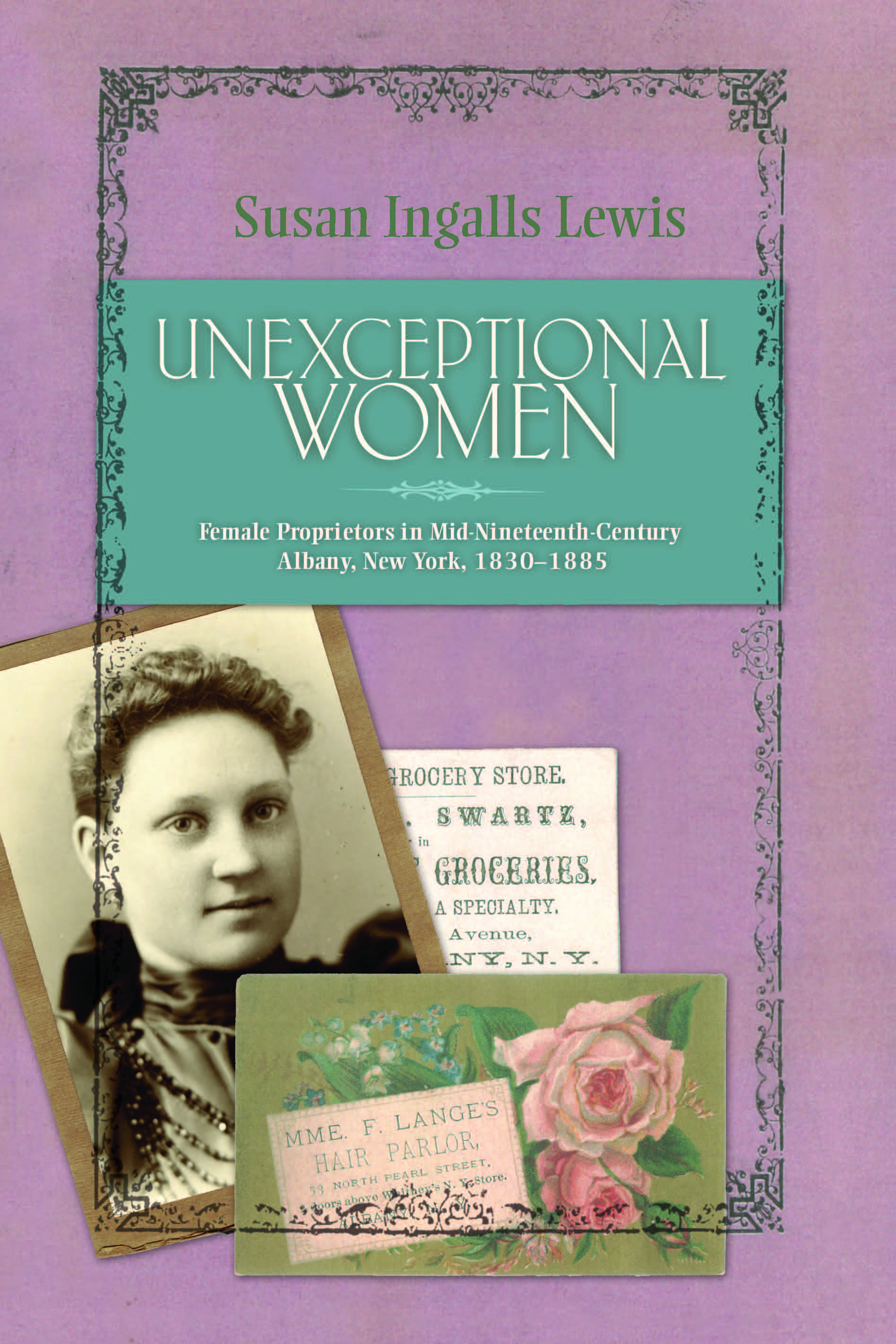|
Winner of the 2011 Hagley Business History Prize from the Business History Conference Unexceptional WomenFemale Proprietors in Mid-Nineteenth-Century Albany, New York, 1830–1885Susan Ingalls LewisHistorical Perspectives on Business Enterprise |  Jan 2009 History/Modern/19th Century; Women’s Studies; Biography & Autobiography/Business 240 pp. 6x9  $44.95 cloth 978-0-8142-0398-9 Add cloth to shopping cart $19.95 paperback 978-0-8142-5532-2 Add paperback to shopping cart Shopping Cart Instructions Review/Change Shopping Cart & Check-out | |||
|
“Unexceptional Women, a path-breaking piece of scholarship, convincingly demonstrates that in nineteenth-century Albany (and, by extension, other cities in the United States and Europe), businesswomen were ordinary rather than exceptional. Lewis is especially adept at showing how idealized notions of womanhood, individualism, entrepreneurial success, obsession with change over time, and erroneously clear-cut distinctions between ‘business’ and ‘labor’ distort the realities of businesswomen’s lives and careers.” —Wendy Gamber, Indiana University “Susan Ingalls Lewis’s eagerly awaited book will give us the best scholarly picture to date of how ordinary people shaped their livelihoods, their day-to-day lives, even their identities, through their work in pre-corporate, urban America. She knows, better than anyone now, how nineteenth-century American urban women who were neither elite nor poor acted on their decisions about work: what to do, how to manage it, and where to do it.” —Pamela Walker Laird, University of Colorado Denver Unexceptional Women: Female Proprietors in Mid-Nineteenth-Century Albany, New York, 1830–1885 by Susan Ingalls Lewis challenges our conceptions about mid-nineteenth-century American women, business, and labor, offering a detailed study of female proprietors in one industrializing American city. Analyzing the careers of more than two thousand women who owned or operated businesses between 1830 and 1885, Lewis argues that business provided a common, important, and varied occupation for nineteenth-century working women. Based on meticulous research in city directories, census records, and credit reports, this study provides both a demographic portrait of Albany’s female proprietors and an examination of the size, scope, longevity, financing, and creditworthiness of their ventures. Although the growing city did produce several remarkable businesswomen in trades as diverse as hotel management, plumbing, and the marketing of pianos on the installment plan, Albany’s female proprietors were most often self-employed artisans, shopkeepers, petty manufacturers, and service providers. These women used business as a method of self-employment and survival, as a means of both individual and family mobility, and as a strategy for immigrant assimilation into an urban economy and middle-class lifestyle. Intriguingly, among the ranks of Albany’s female proprietors Lewis discovered substantial evidence of such supposedly recent phenomena as self-employment, dual-income marriages, working motherhood, home-based business, and the juggling of domestic and professional priorities. The stories of these businesswomen make fascinating reading while simultaneously providing the basis for a theoretical discussion of how to define and understand enterprise for mid-nineteenth-century women. Susan Ingalls Lewis is associate professor of history, the State University of New York at New Paltz. | ||||

